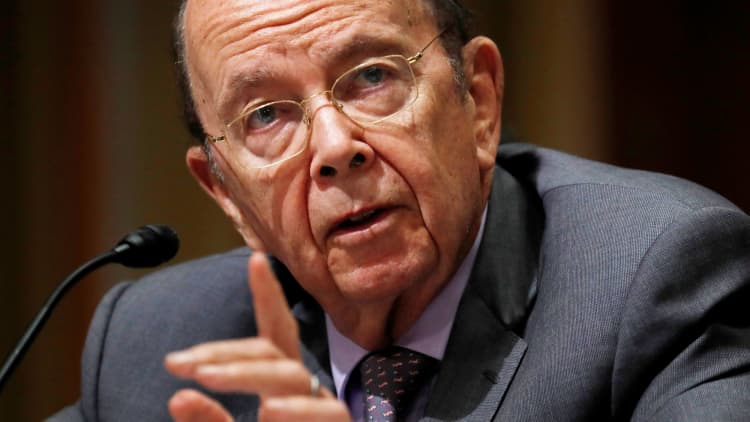President Donald Trump announced a new round of tariffs on Chinese goods Monday night. Some of Apple's products were spared at the last minute, but the tech sector isn't completely removed from the line of fire — or the debate.
"I don't want to speak for [the Trump administration], but I think they looked at this and said that it's not really great for the United States to put a tariff on those type of products," Cook told ABC's "Good Morning America" Tuesday.
Cook has consistently spoken out about the ongoing trade tensions, saying he's optimistic the U.S. and China will come to an agreement. He's not the only tech executive hoping for a reconciliation.
Here's what tech leaders have said on the matter:
Jack Ma, chairman of Alibaba, said early Tuesday the trade dispute could last for two decades and would be "a mess" for all parties.
Ma said trade tensions would likely impact Chinese and foreign companies immediately and negatively, according to Reuters.
Cisco CEO Chuck Robbins told CNBC last week that tariffs would have a "significant" impact on many of the company's core products.
"We need to get to a place on a global basis where we have fair, open trade," Robbins said. "It's going to have some pain associated with it, and it's across all industries."

Lenovo CEO Yuanqing Yang said last week a prolonged trade war is bad for both the economy and consumers and said, "We should see the two governments sit down and reach an agreement."
Colette Kress, chief financial officer at chipmaker Nvidia, addressed the tariffs earlier this month and said all the company can hope to do is "follow all laws in all type of countries."
"I think, every industry, every company around the world is being affected. What may be perceived as just a small piece of the market, but everybody has direct and indirect impact from what is currently occurring in terms of on the tariffs," Kress said at the Citi Global Technology Conference.
Qualcomm CEO Steve Mollenkopf repeatedly said trade tensions were stalling his company's proposed merger with Dutch semiconductor company NXP.
When the deal failed to gain Chinese regulatory approval and felt apart, Mollenkopf said the leading U.S. chip company "got caught up in a trade war."
In July, Dell CEO Michael Dell told CNBC a U.S.-China trade war would bring "mutual assured destruction."
"It would be an extremely bad outcome for both countries," he said then.


